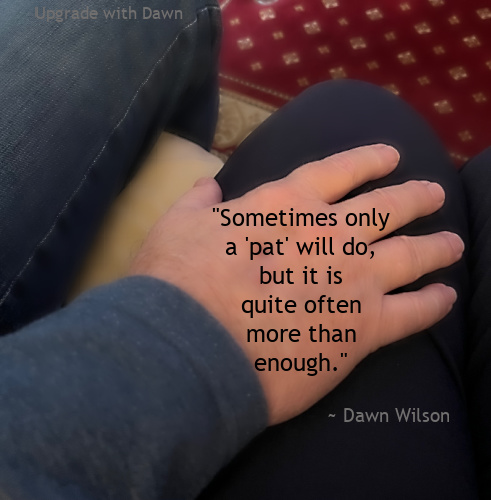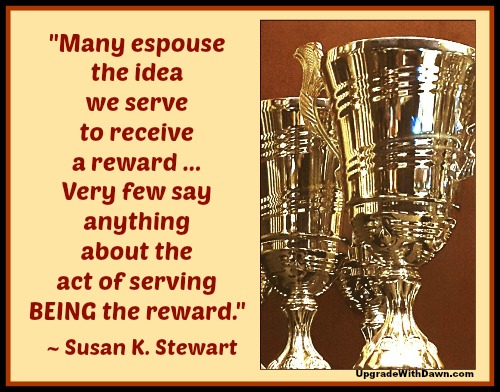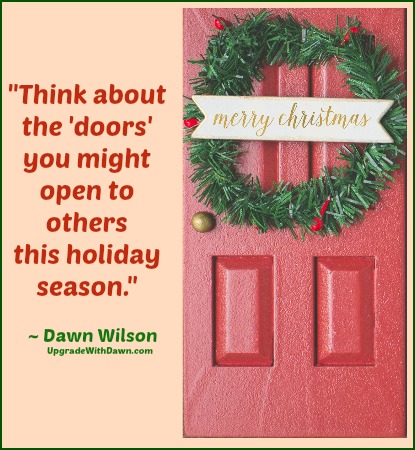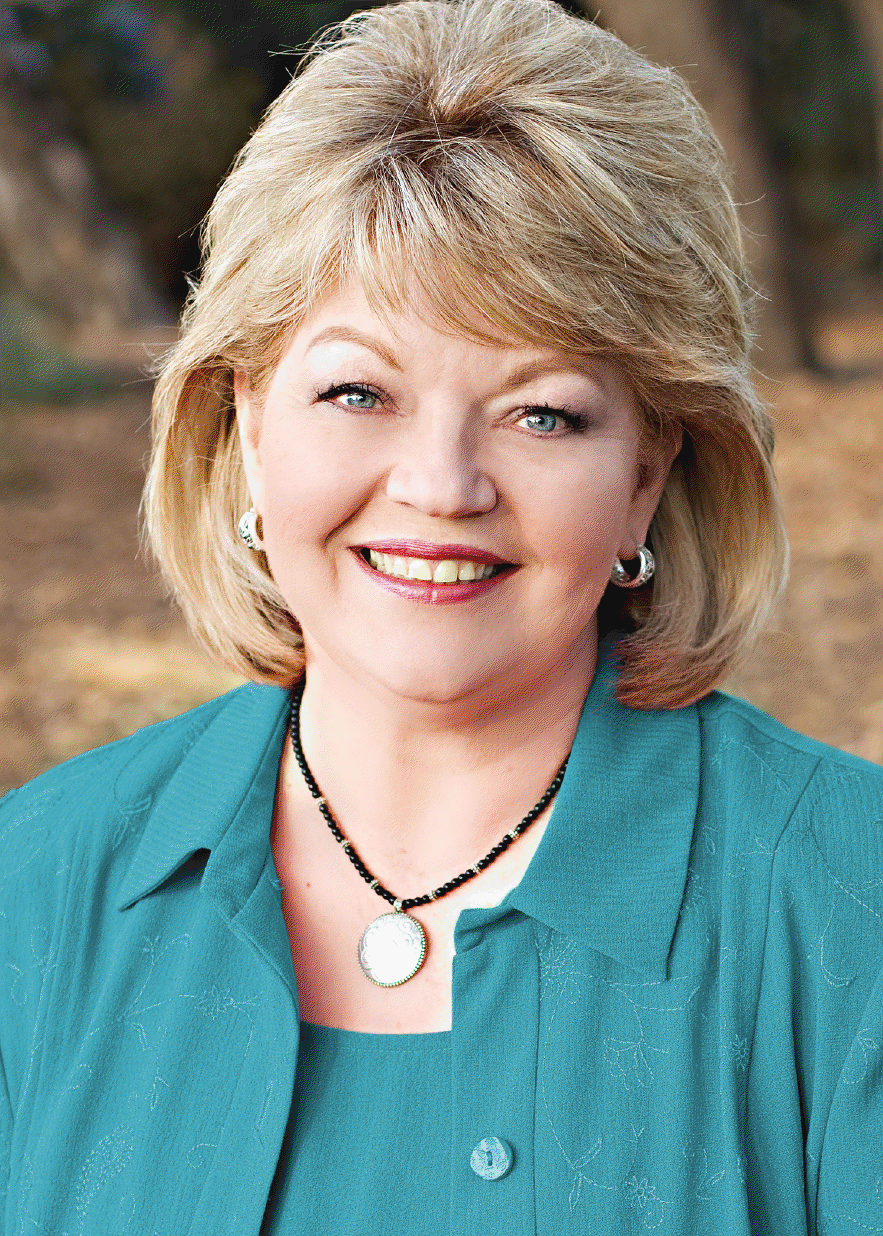When Only a 'Pat' Will Do
In this Encouragement UPGRADE, Dawn shares what she's learned about a simple method of "communication" that helps us encourage others—beyond words, or even when words won't come.
Since my diagnosis, I've found that people don't always know what to say to me. Some find it awkward to converse about my health changes. Others even avoid me, not knowing what to say.
But my husband has taught me an important lesson. Over and over in my health "adventure," he knows he can't "fix" my problems, and he's a man of few words—unless he's teaching or preaching! But Bob reaches out and pats me on the arm if we're standing or on my knee if we're sitting.
It's as if only a "pat" will do at the time. But it is enough. And here's why.
1. A pat says, "I'm here."
There's simply nothing like "presence" to comfort and encourage.
I've heard of spouses who leave their mate in times of distress or tragedy, and that is horribly sad. But I've found great solace in knowing that Bob has been present with me throughout this myeloma journey and every "side trip" (like bronchitis this week).
Presence matters.
God's presence matters most of all. Sometimes, when life seems puzzling, I feel like Father God reaches down to "pat" me with His presence and give me peace. He might bring a scripture verse to mind, or give me some marching orders for my day. Most of all, it's comforting to acknowledge that He will never leave me (Hebrews 13:5b; Psalm 94:14).
God is with us in all our struggles and needs, and even if He feels far, far away.
2. A pat says, "I'm here and I care."
There's a certain tenderness that comes with a gentle pat of encouragement.
The one reaching out to us loves us, and out of that love flows compassion.
When Bob and I attended my Grandpa Webb's funeral—enroute from Michigan to our new home—my grandmother was surprised to see me. For a while, I watched as people began to offer condolences. (Some of the things I heard were not comforting at all!)
Weary, Grandma sat down. I smiled at her and sat down beside her.
I didn't say a word for the rest of the time as people came by—some expressing love, some offering not-too-helpful advice, some not knowing what to say. I simply held her hand and patted it from time to time until Bob said we had to get on our way.
Later, Grandma wrote to tell me that she was the most comforted by my almost-wordless presence and the tenderness of my touch, my "little pats."
It's so comforting to me to know that Father God is always watching over us, and He sees us in our pain and understands (Psalm 31:7; 34:18; 56:8). God reaches out in love to tell us He cares. As Casting Crowns sings, "Your pain may run deep. His love runs deeper still."
We can take all our burdensome anxieties to God, because He cares for us (1 Peter 5:7).
Every need, every burden, every fear, every anxiety—take them all to God.
I like what Dr. Michelle Bengtson wrote, in The Hem of His Garment: "He's a God who stops and bends his ear to listen to our heartfelt cries." How wonderful and touching that our God listens and cares.
3. A pat says, "I'm here to tell you I appreciate you."
Like a pat on the back that says "good job," sometimes a pat can mean, "I see how you are dealing with this, and I appreciate you." Or even, "I admire you."
I've received many pats like this over the past five year as I've shared the highs and lows of my health journey
- It's encouraging to know that someone sees that you're trying to live biblically even in tough times.
- It's motivating to know that others are watching, and it matters that we persevere in courage through God's strength.
God's pats of appreciation might come to us in many ways, directly or through others—like words of gratitude from people who say you helped them through your ministry, or through words of encouragement you shared with them.
And here's another thing: the believer looks forward to a wonderful "pat" when God rewards for faith and obedience. It only begins with God's, "Well done, good and faithful servant."
4. A pat says, "I'm here to help you, if I can."
Sometimes a person who is struggling can't tell you in the moment what they need when you ask, "How can I help?"
People might go ahead and take care of some your needs (anticipating them), but their little pats can tell you they are people you might be able to count on in a pinch.
A pat can say, "I'm here to help you, if I can, however I can, whenever I can, and if you will let me."
Some words can be fruitless, but a pat—with or without words—can make you feel that a person genuinely wants to help. (I have to admit that some people may give you a little pat as a way of escaping involvement; but that's not true with faithful friends.)
And speaking of faithful friends, Father God is our Helper, our Jehovah Ezer.
Psalm 28:7 says that when we place our hopes in God, trusting Him, we find help. Our faithful Father does not abandon us, but He helps us through the difficulties of our journey (Psalm 121). When we confidently come to His throne of grace, we find the help we need and do not need to be afraid (Hebrews 4:16; 13:6).
Sometimes only a "pat" will do, but it is quite often more than enough.
When has a pat from someone encouraged you? How might you share a little pat with someone today?
Dawn Wilson, founder and President of Heart Choices Today, is a speaker and author,  and the creator the blog, Upgrade with Dawn. She is a contracted researcher/reviewer for women's teacher and revivalist, Nancy DeMoss Wolgemuth at Revive Our Hearts, and is a regular columnist at Crosswalk.com. She and her husband Bob live in sunny Southern California, and Dawn has traveled with Him in Pacesetter Global Outreach. They have two grown, married sons, three granddaughters and a rascally maltipoo, Roscoe.
and the creator the blog, Upgrade with Dawn. She is a contracted researcher/reviewer for women's teacher and revivalist, Nancy DeMoss Wolgemuth at Revive Our Hearts, and is a regular columnist at Crosswalk.com. She and her husband Bob live in sunny Southern California, and Dawn has traveled with Him in Pacesetter Global Outreach. They have two grown, married sons, three granddaughters and a rascally maltipoo, Roscoe.
 Post a Comment → Posted on
Post a Comment → Posted on  Thursday, January 4, 2024 at 11:00AM
Thursday, January 4, 2024 at 11:00AM  A "pat" of encouragement,
A "pat" of encouragement,  Encouragement,
Encouragement,  God Cares,
God Cares,  God loves us,
God loves us,  God's Presence,
God's Presence,  Presence,
Presence,  Rewards from God,
Rewards from God,  Serving Others Upgrade Your Life
Serving Others Upgrade Your Life  Encouragement
Encouragement 








